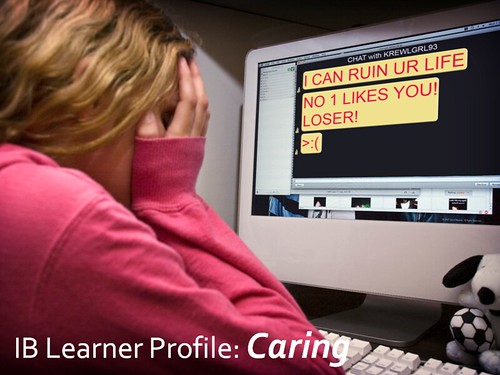Where does the power of the Web lie? To me the power lies in using the opportunities that it can give you in your personal and professional life.
The 21st Century learner has been bombarded with new technology that gives access to global communication and information. This new world of learning needs us to be aware of how we and our students are interacting with the world. The awareness of how to deal with issues inherent in our technological world helps to see the power of it as well.
Making a digital video is a powerful, transformational, educational tool. When students participate in video projects they practice all their academic skills in a productive, real world context. I experienced this when my students created a documentary interviewing a native South African. Not only their peers and teachers have acces to it, basically the whole world can view their project now since it is posted on the web. http://vimeo.com/11219915
If virtual connections via global projects can promote enhanced understanding and a world view, I also realize what a face-to-face opportunity it can bring exchanging ideas and giving suggestions of how to use a washing machine, in exchange of helping me using information technologies. For me learning new technologies is often a messy business. "Messy" learning is part trial and error, part waiting and waiting for something to happen, part excitement in discovery, part terrible frustration and part the most fun you'll ever have. Time can seem to stand still - or seem to go by in a flash. The best part of my messy learning is that besides fixing and solving the problems, it is also difficult to get out of your memory! So, Olaf, my son, your mom is going to use the power of the web; she will use skype, facebook, email, msn and practice learning all the other communication tools that are out there so it feels that you’re still connected with….the nest.



